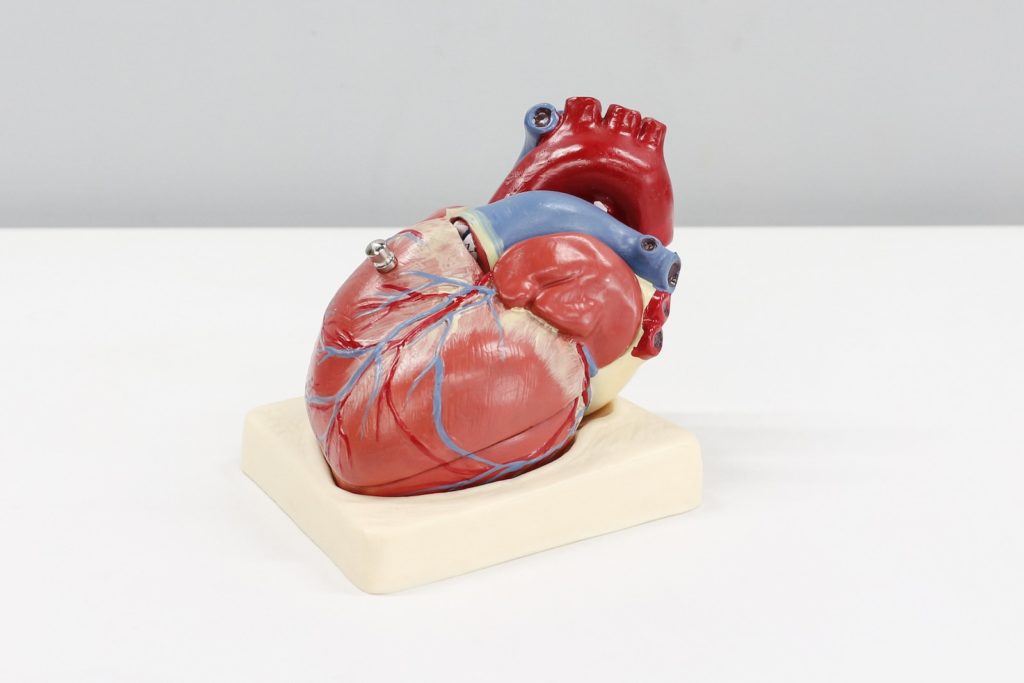Maintaining a healthy weight is a crucial aspect of managing heart-related diseases, as excess weight can exacerbate cardiovascular issues and increase the risk of complications. In the quest for effective weight loss, individuals with heart conditions often consider various options, including the use of diet pills. However, the journey to weight management for heart patients requires a nuanced approach that prioritizes both shedding excess pounds and safeguarding cardiac health.
Diet Pills for Heart Patients
Heart patients face unique challenges on their weight loss journey, as their underlying medical conditions necessitate careful consideration of the methods employed. Excessive weight can strain the heart, elevate blood pressure, and contribute to the progression of cardiovascular diseases. Recognizing the need for a tailored approach, this article seeks to explore the best diet pills specifically designed for individuals grappling with heart-related ailments.

In recent years, the market has been flooded with an array of weight loss pills, each claiming to offer a quick solution to shedding pounds. However, the selection process for heart patients is not merely about effectiveness in weight loss, but also about ensuring the safety of the cardiovascular system.
A cautious and informed approach is paramount when choosing the best diet pills specifically for patients suffering from heart-related diseases.
While the desire to achieve weight loss goals is universal, the health considerations for heart patients necessitate a partnership between individuals and their healthcare providers. This collaboration ensures that the chosen weight loss strategy aligns with medical guidelines and does not compromise cardiac well-being.
Weight Loss Goals for Heart Patients
Weight management takes on a heightened significance for individuals grappling with heart-related diseases. The weight loss goals for these individuals extend beyond aesthetic considerations, becoming a crucial component of their overall cardiac care. Excess weight can contribute to a range of cardiovascular issues, including hypertension, atherosclerosis, and heart failure, making weight loss a pivotal factor in improving heart health.
Weight loss for individuals with heart conditions
For individuals with heart conditions, the primary weight loss goal is often centered around reducing the strain on the heart. Carrying excess weight requires the heart to work harder to pump blood throughout the body, placing additional stress on an already compromised cardiovascular system. Therefore, the objective is to achieve a healthy weight that eases the burden on the heart, subsequently lowering the risk of complications.
Beyond the mechanical strain, weight loss goals for heart patients also address underlying metabolic factors. Obesity is often linked to conditions such as insulin resistance and abnormal lipid profiles, both of which can further contribute to cardiovascular disease. Therefore, an effective weight loss strategy for individuals with heart-related ailments aims not only to shed pounds but also to regulate these metabolic parameters, fostering a more heart-friendly internal environment.

Setting realistic and achievable weight loss goals
Setting realistic and achievable weight loss goals is paramount for heart patients. Rapid and extreme weight loss methods may not only be unsustainable but can also be detrimental to cardiovascular health. The emphasis should be on gradual, steady progress, with an aim to achieve and maintain a weight that is conducive to overall well-being.
Types of Weight Loss Pills Suitable for Heart Patients
Navigating the plethora of weight loss pills available in the market can be overwhelming, especially for individuals with heart-related diseases. When considering diet pills, it is crucial for heart patients to focus on options that not only facilitate weight loss but also prioritize cardiovascular safety. Here, we explore different types of weight loss pills that are deemed suitable for individuals with heart conditions.
- Prescription Medications: Some prescription weight loss medications are designed to assist individuals in managing their weight. These medications are typically recommended under the supervision of healthcare professionals who take into account the patient’s cardiovascular health and potential interactions with other medications.
- Fat Blockers: These pills work by inhibiting the absorption of dietary fats, reducing the caloric intake from fat. While they can aid in weight loss, individuals with heart conditions should use them cautiously, as they may affect the absorption of essential nutrients.
- Appetite Suppressants: These pills aim to reduce feelings of hunger, promoting a decrease in overall food intake. Heart patients considering appetite suppressants should consult their healthcare providers, as these medications may impact blood pressure and heart rate.
- Natural and Herbal Obesity Supplements: Some individuals prefer natural or herbal supplements for weight loss. Options like green tea extract and conjugated linoleic acid (CLA) have been studied for their potential benefits. However, it is essential to approach these supplements with caution, as their safety and efficacy can vary.
- Metabolism Boosters: Certain pills claim to enhance metabolism, thereby increasing the body’s ability to burn calories. Heart patients should be cautious with these, as an accelerated heart rate may pose risks, especially for those with pre-existing cardiovascular conditions.
- Keto Pills: The ketogenic diet has gained attention for its potential benefits in reducing cardiovascular risk. Keto pills, designed to mimic the effects of the ketogenic diet, focus on promoting the body’s use of ketones for energy instead of carbohydrates. These pills may offer heart patients an alternative approach to weight loss, emphasizing a low-carbohydrate and high-fat dietary regimen.

It’s crucial for individuals with heart-related diseases to consult their healthcare providers before embarking on any weight loss pill regimen. Only a thorough assessment by medical professionals can determine the suitability of these options based on individual health profiles, ensuring a balance between effective weight loss and cardiovascular safety.
Importance of Choosing Medications for Heart Patients
Selecting the right weight loss medications is a critical aspect of managing both weight and heart health for individuals with cardiovascular conditions. The importance of this decision extends beyond achieving aesthetic goals; it directly impacts the overall well-being and stability of the heart. Here, we delve into why the choice of weight loss medications for heart patients is a matter of utmost significance.
- Cardiovascular Safety: The paramount concern when choosing weight loss medications for heart patients is ensuring cardiovascular safety. Some weight loss pills may have stimulant effects or interact with medications prescribed for heart conditions, potentially leading to adverse reactions. Healthcare professionals play a crucial role in assessing the safety of these medications within the context of an individual’s cardiac health.
- Blood Pressure Management: Many weight loss medications can influence blood pressure, a crucial factor for heart patients. Certain drugs may elevate blood pressure, posing risks for individuals with hypertension or other cardiovascular issues. Conversely, some medications may have blood pressure-lowering effects. It is imperative that heart patients are closely monitored to prevent any disruptions in blood pressure control.
- Interaction with Cardiac Medications: Individuals with heart-related diseases often take medications such as beta-blockers, ACE inhibitors, or diuretics. The chosen weight loss medication should not interfere with the efficacy of these cardiac drugs or induce adverse interactions. This underscores the necessity of coordination between weight management strategies and existing cardiovascular medication regimens.
- Monitoring for Adverse Effects: Weight loss medications can have side effects, ranging from gastrointestinal discomfort to changes in heart rate. For heart patients, close monitoring and regular check-ups become essential to promptly address any adverse effects and adjust the treatment plan accordingly.
- Individualized Approach: Every heart patient is unique, with distinct medical histories and variations in response to medications. The importance of an individualized approach cannot be overstated. Tailoring weight loss strategies based on an individual’s specific cardiac condition ensures a more targeted and safer approach.

The choice of weight loss medications for individuals with heart-related diseases should be a collaborative decision between the patient and their healthcare provider. This partnership ensures that weight loss goals are pursued in a manner that not only sheds pounds but also promotes and safeguards cardiovascular health.
Side Effects and Components to Avoid
While weight loss pills can be a tool for individuals with heart-related diseases, it is imperative to be aware of potential side effects and components that may pose risks to cardiovascular health. Understanding these factors is crucial for making informed decisions and ensuring the well-being of individuals on a weight loss journey.

Here, we delve into the side effects and components that heart patients should be cautious about when considering diet pills.
- Cardiovascular Side Effects: Some weight loss pills may have side effects directly impacting the cardiovascular system. These can include increased heart rate, elevated blood pressure, or irregular heartbeats. Individuals with heart conditions should exercise caution, as these effects may exacerbate existing cardiac issues.
- Gastrointestinal Distress: Certain diet pills, especially fat blockers, may lead to gastrointestinal discomfort such as diarrhea or oily stools. While these side effects may not directly impact the heart, they can contribute to dehydration or nutritional deficiencies, which can indirectly affect cardiovascular health.
- Interactions with Medications: Weight loss pills can interact with medications prescribed for heart-related diseases. It is essential to be aware of potential interactions, as these can impact the efficacy of cardiac medications or lead to unintended side effects.
- Caffeine and Stimulants: Components like caffeine, commonly found in many weight loss pills, can pose challenges for individuals with heart conditions. Caffeine may lead to increased heart rate and blood pressure. Heart patients should opt for caffeine-free alternatives or those with controlled amounts, ensuring minimal impact on cardiovascular parameters.
- Artificial Additives and Fillers: Some weight loss pills may contain artificial additives, preservatives, or fillers that could be problematic for individuals with heart-related diseases. These components may trigger sensitivities or allergic reactions, emphasizing the importance of choosing pills with minimal and well-tolerated ingredients.
Before incorporating any weight loss pills into their regimen, individuals with heart conditions should consult their healthcare providers. Professional guidance is essential to assess the compatibility of specific pills with existing cardiac health and to mitigate the risk of potential side effects. Additionally, maintaining open communication with healthcare professionals allows for prompt adjustments to the treatment plan if any adverse effects arise, ensuring a safe and effective weight loss journey for heart patients.
The Role of Ketogenic Diet and Keto Pills in Weight Loss for Heart Patients
Amidst the myriad weight loss strategies, the ketogenic diet has emerged as a noteworthy approach, particularly for individuals with heart-related diseases. The ketogenic diet emphasizes a low-carbohydrate, high-fat intake, prompting the body to enter a state of ketosis where it relies on ketones for energy instead of glucose. This dietary shift has shown promise not only in weight management but also in lessening cardiovascular risk factors.
Benefits of the Ketogenic Diet:
- Weight Loss: The ketogenic diet is renowned for its efficacy in promoting weight loss. By restricting carbohydrates, the body turns to stored fat for fuel, leading to a reduction in overall body weight.
- Improved Lipid Profile: Studies suggest that the ketogenic diet may positively impact lipid profiles by decreasing levels of triglycerides and increasing levels of high-density lipoprotein (HDL) cholesterol. These changes are favorable for heart health.
- Blood Sugar Regulation: The diet’s carbohydrate restriction helps regulate blood sugar levels, which is crucial for individuals with heart conditions, as diabetes and insulin resistance are often comorbid with cardiovascular diseases.
Keto Pills as a Supplement:
Recognizing the potential benefits of the ketogenic diet, individuals with heart-related diseases may consider keto pills as a supplement to their weight loss journey. Keto pills aim to induce a state of ketosis, mimicking the effects of the diet. These pills often contain exogenous ketones, which the body can use for energy, potentially aiding in weight loss.
Cautions and Considerations:
Despite the potential benefits, individuals with heart conditions should approach keto pills with caution. It is essential to consult healthcare providers before incorporating them into a regimen, as the impact on cardiovascular health may vary based on individual circumstances.

Moreover, keto pills should complement a comprehensive approach to weight loss, including proper nutrition and regular physical activity. The ketogenic diet and keto pills are not one-size-fits-all solutions, and a tailored approach, guided by medical professionals, ensures that the strategy aligns with both weight loss goals and cardiac well-being.
The ketogenic diet and keto pills present an intriguing avenue for individuals with heart-related diseases seeking a holistic and potentially heart-protective approach to weight management. However, careful consideration and professional guidance are essential to navigate this dietary strategy safely and effectively.
Comprehensive Approach to Weight Loss for Heart Patients
Embarking on a weight loss journey for individuals with heart-related diseases necessitates a comprehensive approach that prioritizes both shedding excess pounds and safeguarding cardiovascular health. While weight loss pills, including keto pills, may offer a supportive role, they should be viewed as components of a broader strategy that encompasses nutrition, physical activity, and ongoing medical supervision.
- Holistic Nutrition: A heart-healthy diet is fundamental for individuals seeking weight loss while managing cardiovascular conditions. Emphasizing nutrient-dense foods, such as fruits, vegetables, whole grains, and lean proteins, supports overall health. Working with healthcare providers or nutritionists helps tailor dietary plans to individual needs, ensuring optimal nutrition without compromising cardiac well-being.
- Regular Physical Activity: Incorporating regular exercise is crucial for both weight management and cardiovascular health. Physical activity not only burns calories but also enhances heart function and contributes to overall well-being. Heart patients should engage in activities suitable for their condition, with exercise plans crafted in consultation with healthcare professionals.
- Medication Management: For individuals with heart-related diseases, managing medications is a critical aspect of the weight loss journey. Healthcare providers play a central role in adjusting dosages or exploring alternative medications to align with weight loss goals. Open communication ensures a cohesive strategy that addresses both cardiac health and weight management.
- Ongoing Medical Supervision: Regular check-ups with healthcare providers are paramount throughout the weight loss process. Monitoring key indicators such as blood pressure, cholesterol levels, and overall cardiac function allows for timely adjustments to the weight loss plan. It also ensures that any potential complications are identified and addressed promptly.
- Mindful Weight Loss Goals: Setting realistic and sustainable weight loss goals is essential. Rapid or extreme weight loss may not only be counterproductive but can also pose risks to cardiovascular health. The focus should be on gradual, steady progress that aligns with overall health objectives.
- Emotional Well-being: Acknowledging the emotional aspects of weight loss is crucial. Stress, anxiety, and depression can impact both cardiac health and the ability to adhere to weight loss plans. Integrating strategies for emotional well-being, such as counseling or support groups, contributes to a holistic and sustainable approach.

A comprehensive approach to weight loss for individuals with heart-related diseases goes beyond the realm of diet pills. By prioritizing nutrition, physical activity, medication management, ongoing medical supervision, mindful goal-setting, and emotional well-being, individuals can navigate their weight loss journey safely and effectively, fostering a lifestyle that promotes both a healthy weight and a healthy heart.
Conclusion and Recommendations for Heart Patients
In the pursuit of weight loss for individuals with heart-related diseases, the journey is nuanced, requiring a careful balance between shedding excess pounds and safeguarding cardiovascular health. Throughout this exploration of weight loss pills, the ketogenic diet, and a comprehensive approach, several key principles emerge to guide those on this crucial path.
- The significance of selecting weight loss medications tailored to the specific needs and conditions of heart patients cannot be overstated.
- From prescription medications to natural supplements, understanding the potential impact on cardiovascular health and consulting healthcare providers remains paramount.
- The cautionary approach outlined in considering side effects, interactions, and the avoidance of certain components, such as excessive caffeine, underscores the need for an informed and personalized decision-making process.
The ketogenic diet and keto pills present intriguing possibilities for heart patients, offering not just weight loss benefits but potential cardiovascular advantages. However, these should be approached with caution and under the guidance of healthcare professionals. The emphasis on holistic nutrition, regular physical activity, and ongoing medical supervision complements the role of weight loss pills, contributing to a multifaceted strategy that prioritizes overall health.
A comprehensive approach to weight loss for heart patients extends beyond the physical realm to embrace emotional well-being. Acknowledging and addressing the emotional aspects of the weight loss journey is integral to long-term success. By fostering a supportive environment, considering mental health, and setting realistic goals, individuals can navigate the emotional complexities inherent in weight management.